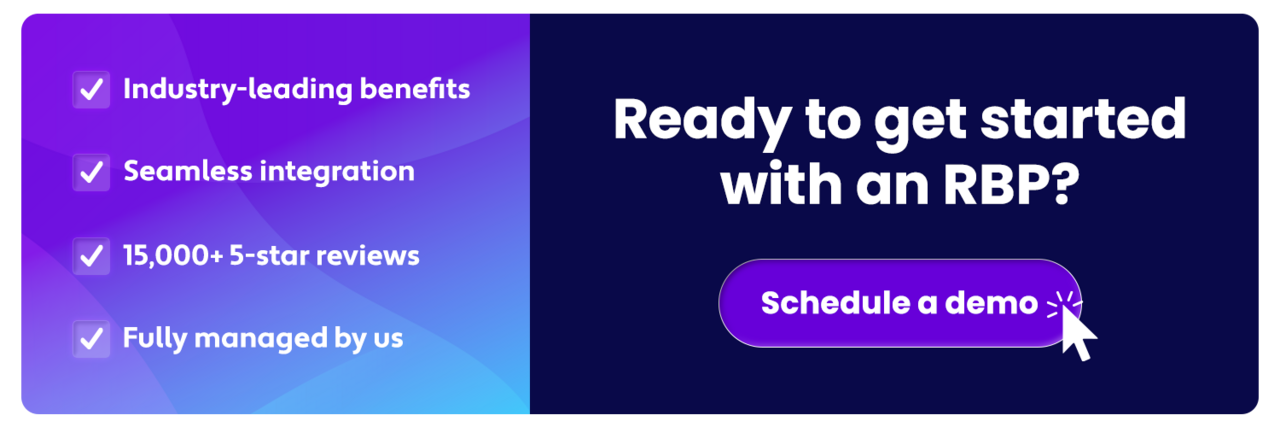Growing your portfolio size remains one of the most effective ways to make your business more profitable and continue to scale. But many property managers are left asking how to find real estate investors to manage for in the first place.
First off, let’s be clear about what we mean when we say “investors.” Real estate investors are owners of rental properties who are looking to make those properties profitable, and who are potential clients for property management companies. Many PMs differentiate investors from accidental landlords, and define investors as property owners who are deliberately looking to build wealth through real estate.
Finding investors is essential for growing your property management business, but it’s not an easy task. In this post, we’ll dive into how to find investors and get them excited about becoming your client.
8 Ways to find real estate investors for your property management business
Let’s take a look at how to grow your business without burning out. Here are eight ways that you can find new investors to add to your portfolio.
1. Leverage your existing network for referrals
Your network is a fantastic place to find referrals, even among those who aren’t real estate or property management professionals. The unique thing about real estate investing is that people in all kinds of different professions participate in it. Someone can be a full-time accountant, or carpenter, or photographer, and own investment properties.
Of course, you want to be sure to network with people in the real estate industry, too. Work on connecting with current clients, real estate agents, lenders, and other industry professionals. Build a strong rapport, and focus on genuine, long-term relationships where you can provide value, not just pursue transactions. Once you have a strong relationship in place, you can ask about potential referrals for real estate investors who might be looking for management services.
You should also consider developing your sales skills, especially around consultative sales methods. These techniques focus on uncovering investor needs and demonstrating how your services address them. Ultimately, they’re all designed to help you close deals faster. One example is the Tie Down approach, which focuses on getting into a rhythm of consistent agreement from your prospective client. There are plenty of other sales methods that are worth researching, too. Find a couple that work well for you, and put them into practice.
2. Attend real estate associations and events
In a post-Covid world where virtual connections seem more common than in-person meetings, don’t underestimate the value of genuine face time. Get out of the office and attend an industry event or tradeshow where you can find like-minded people and potential clients. NARPM hosts several national and regional events each year, but you should also consider opportunities like PM Systems, NRHC, and IMN, among others.
In-person networking is effective because you can meet so many people at once, make a more meaningful first impression, and then follow up with people after the event to pursue further discussions. Just make sure you bring your business cards!
One of the other nice things about trade shows is that people attending are likely looking to network as well, and possibly even looking for solutions. That takes a lot of the pressure off and creates a safe environment to approach conversations with a business-focused mindset. That said, you should always take the approach of wanting to have genuine conversations, asking people about themselves, and listening to what they have to say. You just might learn a thing or two.
3. Deep-dive local networking (beyond real estate events)
You should also consider getting out to local events that aren’t specific to real estate. There are plenty of options here; think about Chamber of Commerce meetings, Toastmasters, Rotary Club, BNI, and local charities or fundraisers. These are all great networking opportunities, and you can often find professionals there who might be interested in real estate investment.
There are also opportunities in your day-to-day life, whether it’s at the gym, at a golf club, or even a co-working space where you might work a couple of days per week.
One of the reasons these situations can be so beneficial is specifically because they’re not real estate-focused. You may be the only property management professional there, giving you the insider opportunity to build relationships without having to compete.
If you’re going to go this route, make sure you have a solid elevator pitch prepared, especially one that focuses on how you’re different from your competitors. You should also have a clear plan to follow up after meetings, and make sure to actively participate in group discussions to make yourself stand out.
4. Optimize your business’s local listings
Real estate is a local business, so make sure that you’re maximizing your local visibility. Local SEO is essential for property managers, so make sure you’re optimizing your website for your location. Real estate investors are likely to be searching for “property managers in my area” or similar terms, and search engines will produce local results first. You want to be high in the search rankings so that you can capture the attention of your prospects.
You should also be optimizing your local business listings across platforms like Google My Business and Yelp. Make sure that the information there is up to date, and that there are clear, easy to use links to your website, along with a phone number that can connect prospective clients with your office. You should also be sure to include a list of services that you offer, a comprehensive business description, and accurate business hours. There’s nothing more frustrating than calling up a business only to find out they’re closed.
Reviews are more important than ever, and are often one of the first things potential customers look for when researching your business. Make sure that you’re responding to reviews and addressing anything that’s inaccurate so that your listings paint a fair picture of your brand.
5. Engage with your potential investors online
Online groups and social media platforms are also a great way to meet and get to know potential investors. There are plenty of property management groups across LinkedIn and Facebook, many of which include property owners. There are also property management-focused groups like BiggerPockets, which can also be valuable.
You can use these groups as a way to build credibility by posting and sharing high quality content. Give advice, share insights, and answer questions to show that you know what you’re doing and are a trustworthy member of the community. Contribute in conversations, and make sure you’re authentic and sincere in your interactions.
Before you jump in, make sure that your profile is polished and professional. You don’t want to start messaging people in industry groups if your profile shows an unprofessional version of yourself.
6. Partner with real estate agents and firms
Real estate agents and brokerages are another fantastic way to build a steady stream of referrals. Property managers and Realtors can form a mutually beneficial relationship, providing each other leads. When a Realtor sells a property to an investor, they can recommend the property manager’s services. When a PM has a resident who’s looking to buy a home, they can give the real estate agent a referral.
It’s important to be clear about everyone’s role in a partnership like this. Will you be sharing market insights and advice, or is it purely a lead-based program? How often will you be exchanging leads? Is there a minimum threshold, or a cost if one person doesn’t hold up their end of the bargain? Set these rules at the outset to avoid potential bad blood later on.
An agreement with a real estate agent can also help attract investor clients outside of the referral program, because it means you can better serve them through the full lifecycle. If they’re a dedicated investor with plans to purchase more properties, your relationship with a Realtor can be valuable to them.
7. Run ads
Of course, advertising is always a great option for finding new clients. We recommend using major sites like Google, Facebook, and LinkedIn, all of which allow you to target your ads to specific geographic areas. That way you aren’t paying to show ads to people halfway across the country who you aren’t able to serve anyway. You can also target people based on their job title or interest, so you can really home in on potential clients and maximize your return on investment.
You can also use dedicated advertising sites like All Property Management, a tool specifically designed to match investors with property managers. There are plenty of industry-specific sites where you can advertise your company and try to find new investors.
8. Partner with REIT fund managers
Finally, our eighth tip is to partner with Real Estate Investment Trust managers. Many of these funds have large portfolios of properties, and partner with property managers in order to manage and maintain the value of those assets.
If you do choose to pitch REITs, make sure you’re emphasizing operational efficiency, resident retention, and cost savings. These are investment-focused clients, so make sure you’re equally focused on financials and return on investment.
One of the biggest advantages of working with REITs is that they’re also consistently trying to grow their own portfolios, which means a steady stream of new business for you.
How to communicate the value of your property management services
Once you’ve identified some new leads, it’s important to actually be able to pitch your services effectively. This requires adept communication and the ability to explain not just why a professional property manager is helpful, but how you’re different from other PMCs.
Your goal is to be able to discuss each investor’s fears, anxieties, and pain points, and put them at ease. An Investor Benefits Package is extremely helpful in easing those concerns and making an investor feel both comfortable and valued.
Showcase your expertise and market knowledge
Start by positioning yourself as a knowledgeable expert. Investors want to know that you bring legal, financial, marketing, and maintenance skills that will help them maximize the value of their properties.
Don’t just speak about these areas in the abstract, either. Make sure to tell specific success stories from real clients that have measurable outcomes. You can also include positive client feedback, which will help build trust and social proof.
Emphasize how you ensure compliance and reduce risk
One of the biggest concerns for many real estate investors is compliance. Landlord-tenant laws and fair housing regulations can get complicated, especially if the property is in a city or county that has additional restrictions. It’s a key reason why investors may look to hire a PM.
Show how your business’s processes help mitigate those risks, and point to similar properties that face similar restrictions. Tell the story of how you’ve maintained compliance with local laws. It’s also helpful to walk through your inspection processes, and how they intersect with compliance.
An Investor Benefit Package can also help here, especially if it includes things like insurance, rent guarantees, or eviction protections. These go a long way in reducing investors’ legal and financial risks, which can be a huge selling point.
Highlight your tenant screening and placement processes
PMs need to have rigorous screening procedures to secure quality tenants for investors. One of the benefits of hiring a PMC is that they can often handle resident applications more efficiently than an investor could on their own, so make sure to emphasize this point in your sales process.
An Investor Benefits Package can support top-quality screening services and protections in the event of resident default. An IBP can help minimize resident issues across the board, bringing more consistent income to investors.
Explain how you handle financial management and reporting
Many investors are concerned with one thing first and foremost: money. They want to know that they’ll be receiving regular checks on time, and that you’re handling the finances responsibly. Make sure that your pitch covers rent collection, lease terms, and reporting so that investors know they’re in good hands.
Put particular emphasis on when and how you report out financial updates. Show sample reports and let investors know what they can expect each month, quarter, or year.
Demonstrate the investor’s cost savings and improved ROI
Similarly, you’ll want to be sure you’re proving your ROI in your investor pitch. Show the investor why outsourcing property management not only makes their lives easier, but also reduces overhead and leverages economies of scale.
Again, be sure to point out any cost savings opportunities that differentiate you from your competition, and consider telling real stories of how you maximized return on investment for existing clients.
Explain how you facilitate scalability and growth
The next key topic to make sure you’re covering is growth. You need to emphasize to the client that a good professional property manager can not just keep their asset stable, but actually help increase its value and allow the investor to add to their portfolio. By selecting a property manager who also takes an asset management mindset, investors can add properties to their portfolios effectively, and with no increase in workload.
Secure more investors with Second Nature’s RBP
In order to successfully bring more investors onboard, you need to be proactive, persistent, and authentic in your outreach. Make sure you’re not only proving the value of property management itself, but also setting yourself apart from the pack.
A Resident Benefits Package can help you secure new investors by creating a Triple Win for them, their residents, and your company. Schedule a time to meet with our team and see how an RBP can help you grow your portfolio.
Topics:





